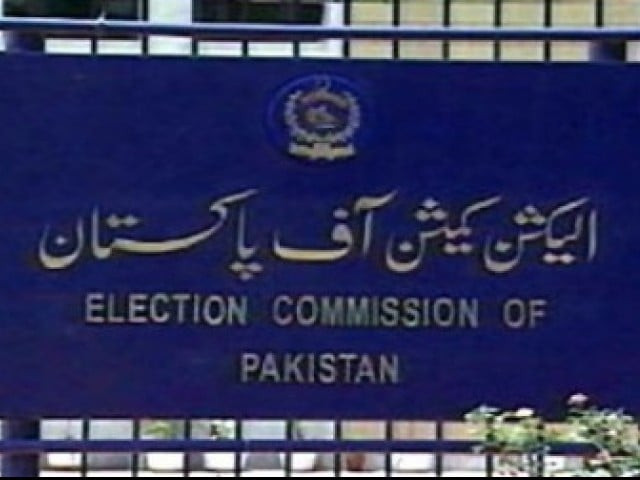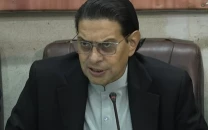Delimitation in Rawalpindi: ECP contests LHC verdict ‘not sustainable’
Appellant argues judge ‘misinterpreted’, ‘misunderstood’ Punjab LG Act provisions

Election Commission of Pakistan. PHOTO: STOCK IMAGE
The highest election body on Monday challenged a ruling of a Lahore High Court (LHC) judge on delimitation of union councils in Rawalpindi division and sought leave to appeal against the verdict.
In the appeal filed in the Supreme Court, the Election Commission of Pakistan (ECP) has raised questions about interpretation of the Punjab Local Government Act, 2013, and the sustainability of the verdict.
Justice Mehmood Ahmed Bhatti of the LHC Rawalpindi bench on October 1 declared delimitation of over 37 union councils of Rawalpindi division void. The single bench gave the verdict on identical petitions filed by 47 individuals against delimitation.
Read: Delimitations: LHC summons ECP on Sept 7
The ECP has challenged the verdict, making the Punjab government, the federal joint census commissioner of the Statistics Division, Rawalpindi Local Government Assistant Director Haroon Abbasi, Murree Union Council former nazim Sohrab Ahmed Abbasi, Murree Tehsil Municipal Committee member, and others as respondents.
In its appeal, the ECP has raised questions about the LHC verdict claiming the judge “misinterpreted” the provisions of chapter II and III, and “misunderstood” the provisions of Section 3 of the Punjab Local Government Act of 2013.
The plea says the judge “wrongly” recorded a finding that despite a bar in Section 10-A of the act, the court has the jurisdiction to review the delimitation of a union council.
The ECP has also contended that the court did not take into consideration, the provision of Article 225 of the Constitution, the precedent law and Section 38 (1) of the Punjab LG Act.
The court failed to properly comprehend the scheme of election prescribed by the Act, the ECP said.
The ECP, in support of the questions raised maintained that the Punjab LG Act was promulgated on August 23, 2013. In the original scheme, delimitation was to be conducted by the provincial government. However, the court interpreted the Article 140-A of the Constitution, and held that “election” includes “delimitation” of the constituencies. As a result of the judgment, two amendments were introduced to the LG Act.
The appellant further contended that section(s) six to 10 were relevant for present purposes.
As per Section 6, the government shall, through a notification, divide a district into rural and urban areas, demarcate and declare a local area consisting of a metropolitan corporation, district council, municipal corporation, and municipal committee, depending on the population of the urban area.
Explaining Section 8, which deals with delimitation, the ECP has maintained that the power lies only with the government to determine the number of the UCs in a metropolitan or municipal corporation, district council and wards of a municipal committee. The ECP further contended that it was the commission that should delimit the UCs and the wards.
The judgment drew a wrong inference from section 3(1)(d) of the act and misinterpreted Section 10-A of the act to hold that there is no bar for court to review the delimitation of a UC after the announcement of election schedule, the appellant says.
The provision was added to end uncertainty in the election process, the plea says.
The ECP has prayed that the LHC verdict is not sustainable.
Published in The Express Tribune, October 13th, 2015.



















COMMENTS
Comments are moderated and generally will be posted if they are on-topic and not abusive.
For more information, please see our Comments FAQ